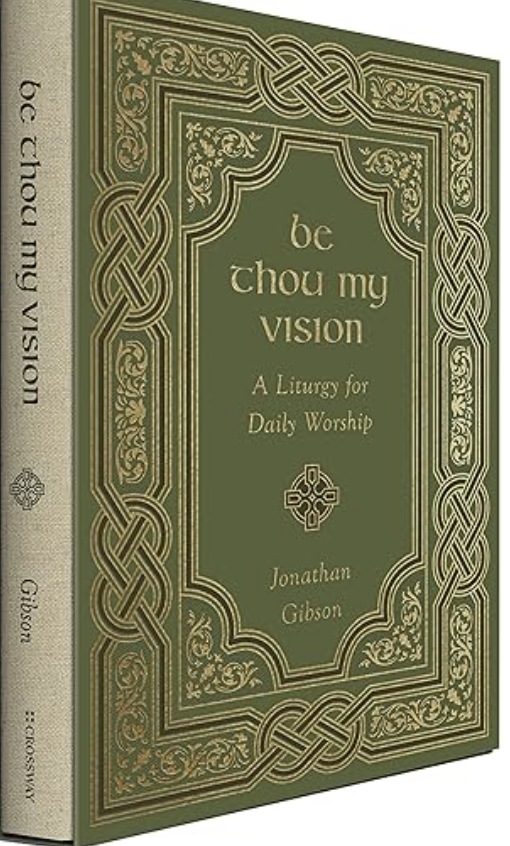Be Thou My Vision: A Liturgy for Daily Worship
In C.S. Lewis’ novel, The Screwtape Letters, the devil Screwtape writes to his protégé, Wormwood, explaining that though, “The horror of the Same Old Thing is one of the most valuable passions we have produced in the human heart” yet, God in his benevolence has, “balanced the love of change in them by a love of permanence. He has contrived to gratify both tastes together on the very world He has made, by that union of change and permanence which we call Rhythm. He gives them the seasons, each season different yet every year the same.”

In a similar manner, liturgy, a form or order according to which religious worship, especially Christian worship, is conducted, can be a helpful means to establish a ‘rhythm’ in our times of worship.
During the Covid-19 lockdowns, Jonathan Gibson, an ordained teaching elder in the International Presbyterian Church, UK, and associate professor of Old Testament at Westminster Theological Seminary in Philadelphia, sought to aid the congregation in personal and family times of worship.
Be Thou My Vision is the product of that effort ordering elements of worship in a fixed liturgy to “provide a healthy and enjoyable rhythm” to our daily worship. Jonathan does remind us that personal and family worship is not a replacement for the weekly gathering of the church. Instead, it can one means to help keep us through the week and be prepared when we do gather together.
After an introductory preface and acknowledgments, Part I gives a Scriptural Foundation for Daily Worship followed by a Structural Format of Daily Worship in which the author lays out the format of his liturgy. Jonathan does acknowledge there is no explicit command in Scripture to have what is commonly called a “quiet time,” or personal “devotion,” yet lays out our need for prayer and instruction from God’s word.
The structure of each day has elements of reading from God’s word, historic prayers, one of the historical creeds, and either the Heidelberg Catechism or Westminster Shorter Catechism. I find it useful that each element is packaged together in one book along with the M’Cheyne Bible reading plan. Ribbons are included to mark the day, the catechism, and the reading plan, so it is very easy to turn to each section.
Many are familiar with the acronym ACTS as a structure for prayer – adoration, confession, thanksgiving, and supplication. What I appreciate in the book is the manner in which each category of prayer is preceded or followed by a reading from scripture.
The opening scripture as a ‘call to worship’ is followed by a prayer of adoration. Scripture concerning God’s law is followed by a prayer of confession and further scripture to comfort and assure of God’s promise of forgiveness in Christ. Following instruction from one of the creeds and catechisms there is a prayer for illumination prior to reading a portion of God’s word. Last, having the mind and heart informed, there is a prayer of supplication.
Quite honestly, that is a lot. The author says that all the elements can be finished in 15 to 20 minutes. I have found that to be true if I read straight through. However, stopping to meditate can take much longer. I do appreciate that there is flexibility to just skip over some of the elements and fit in what time allows. This is a 30-day guide, so the skipped elements can be picked up another time.
There is repetition in some of the sections which aids in memorization. My father-in-law struggles in his old age and it is a reminder of how powerful memorization can be as he is still able to recall scripture, the Apostle’s Creed, and the doxology.
So, if you could use some help focusing and directing your thoughts in a God-centered manner, and would like to enter into worship with saints now in heaven, pick up the book and use it.
I share the author’s prayer that our lives be built up in Christ and enriched “while together we wait for the eternal weight of glory, when the things that are unseen will finally be seen (2 Cor. 4:17).”
More in Monthly Newsletter
May 1, 2024
The Christian Ethic of Joy and SufferingMay 1, 2024
Elders ReportMay 1, 2024
Deacons Report